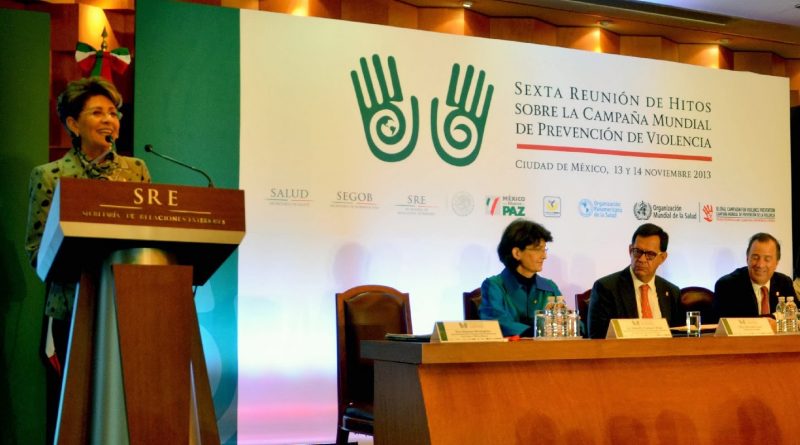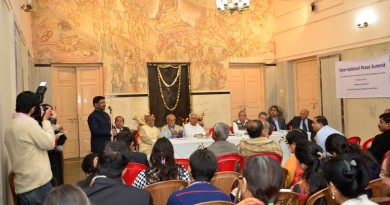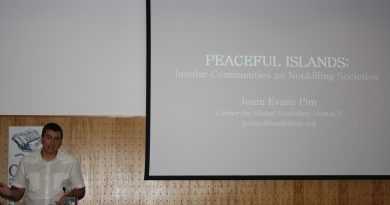WHO 2014 Violence Prevention Milestones Meeting Report
The Center for Global Nonkilling, a member of the World Health Organization’s Violence Prevention Alliance, participated last week (November, 11-15) in the 6th Milestones in a Global Campaign for Violence Prevention Meeting, organized in Mexico City by the country’s ministries of Health, State and Foreign Affairs.
The meeting was inserted on a wide “Violence Prevention Week from a Public Health Perspective” that also included a two-day conference on “Best Practices in Violence Prevention Meeting”, a High Level Ministerial Meeting on Violence Prevention and the annual meeting of the Violence Prevention Alliance.
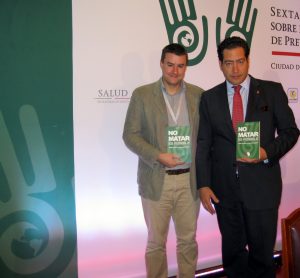 CGNK was represented by its Director Joám Evans Pim, who also participated in the distribution of a new Spanish Edition of the book Nonkilling Global Political Science, especially sponsored by Mexico’s government for its distribution during this week and beyond. The new edition includes a preface by Dr. Arturo Cervantes Trejo, Professor of the Carlos Peralta Chair in Public Health at the Anáhuac University and General Director of the National Council for Injury Prevention in Mexico (see picture below).
CGNK was represented by its Director Joám Evans Pim, who also participated in the distribution of a new Spanish Edition of the book Nonkilling Global Political Science, especially sponsored by Mexico’s government for its distribution during this week and beyond. The new edition includes a preface by Dr. Arturo Cervantes Trejo, Professor of the Carlos Peralta Chair in Public Health at the Anáhuac University and General Director of the National Council for Injury Prevention in Mexico (see picture below).
The meeting resulted in a clear message regarding the understanding of violence as a preventable disease. As Prof. Peter D. Donnelly, on the steering group of WHO’s Violence Prevention Alliance, expressed in the inaugural session: “We currently know enough to drastically reduce violence. The question remains why policies and politicians continue to be reluctant to put this knowledge into practice”.
The call to include violence as part of the redefinition of the Millennium Development Goals in the post 2015 development agenda, including the reduction of violent deaths as a measurable indicator, was also agreed among participants, following the principles of the Geneva Declaration on Armed Violence and Development. CGNK has also committed itself to promote the inclusion of this goal prior to the 2015 United Nations General Assembly (UNGA), as aiming at less killing will significantly impact subsequent developmental strategies.
During the VPA meeting, CGNK also proposed the establishment of a Research Network on Violence Prevention, using UNESCO’s Unitwin program, that could play a significant role in carrying on the work of the current VPA Research Agenda Project Group, of which the Center is a participant. Other active WHO-VPA groups include those on parenting, training, communication and assets database.
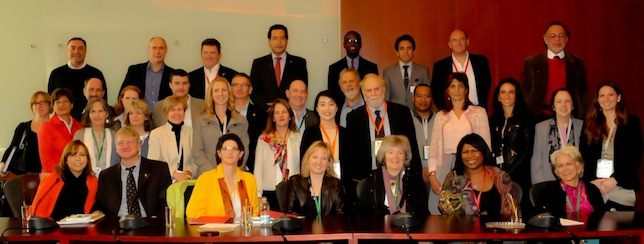
The next VPA meeting will take place in Washington D.C. next October, and will probably feature the presentation of the Global Status Report on Violence, that will track the implementation of the 2002 World Report on Violence and Health recommendations and present the most recent data on killing and action to prevent violence on a country-to-country basis.

